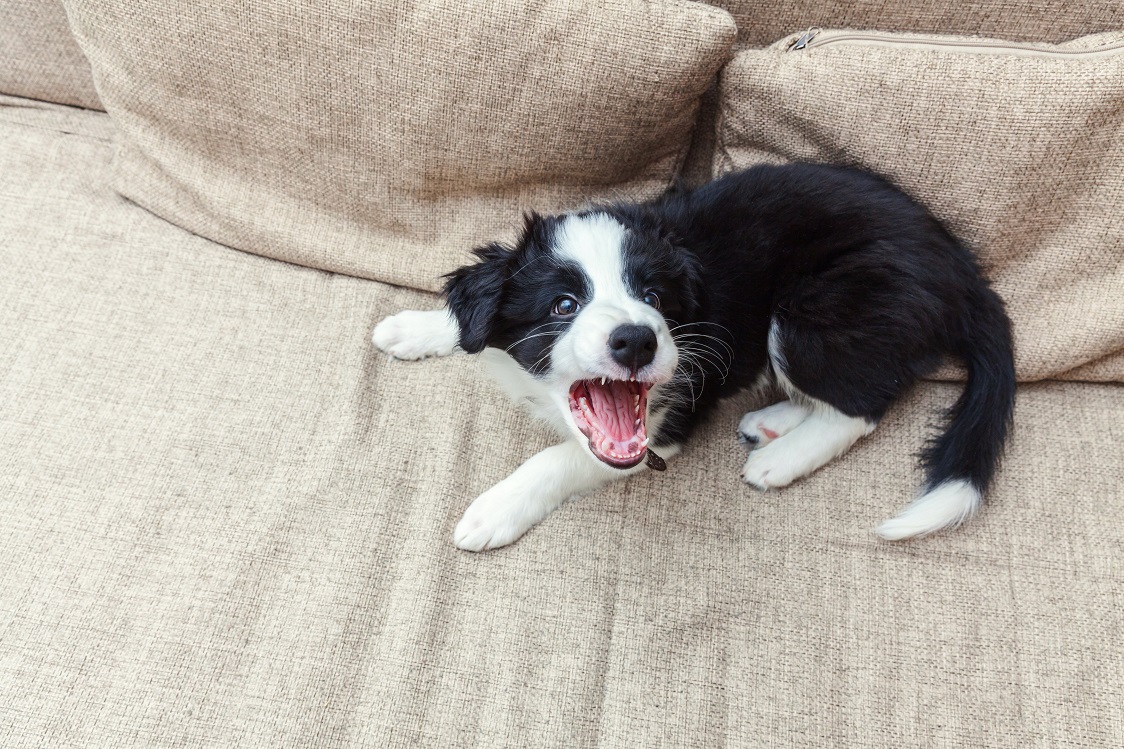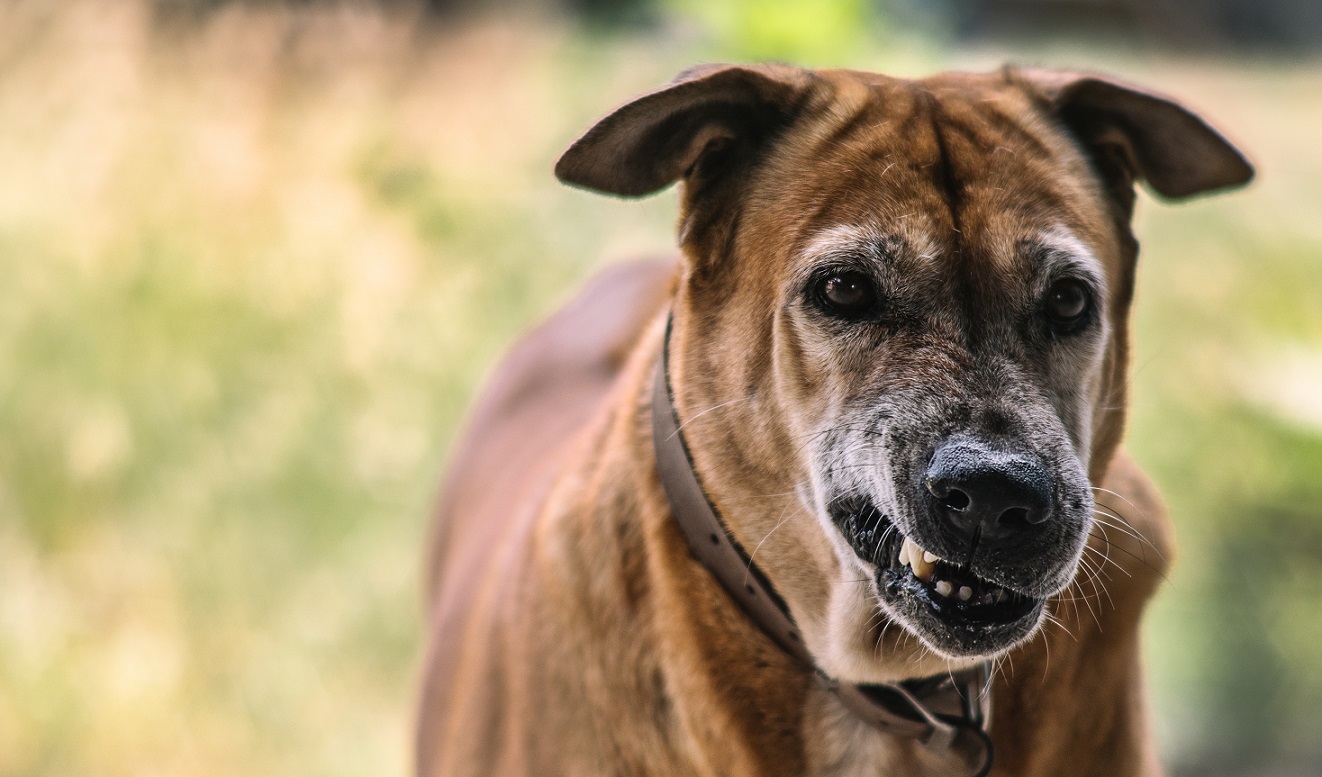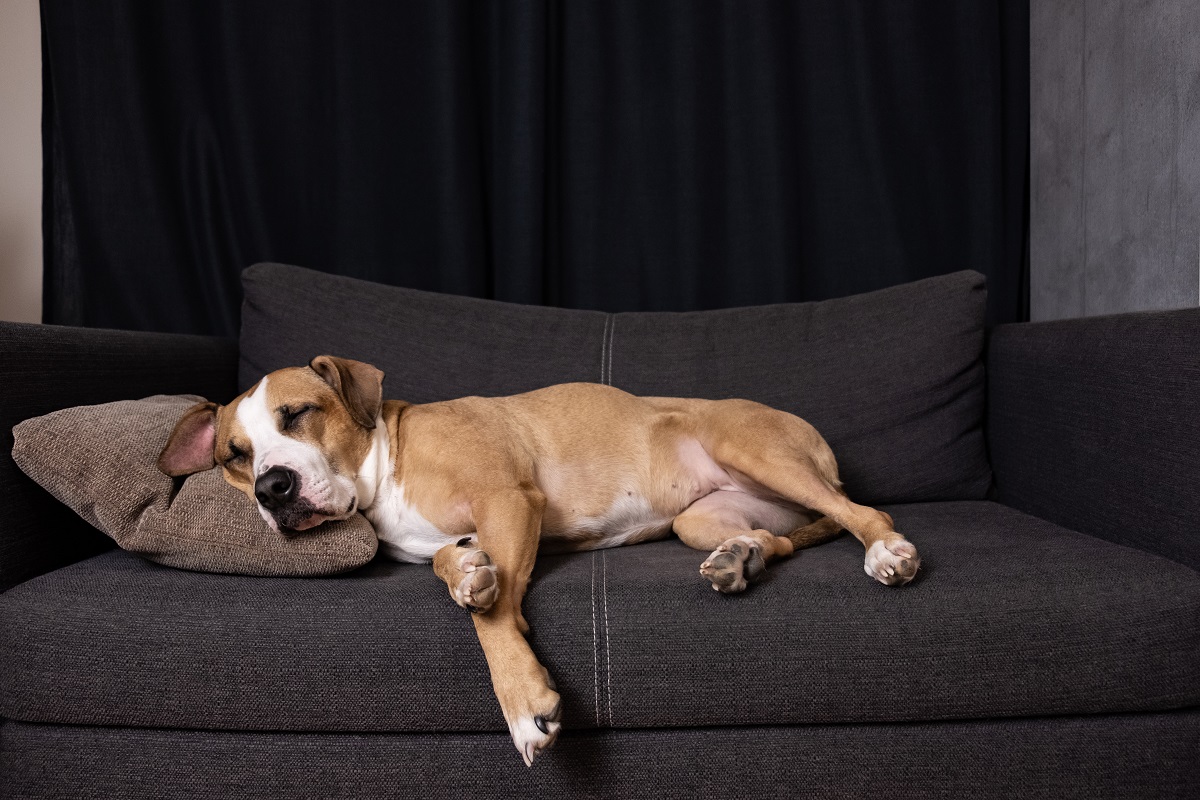Why is my dog more aggressive at night? If you’re asking yourself the same question, you’re not alone.
Dog aggression is always unnerving. Uncontrolled barking, lunging, snapping, and biting can be frightening, regardless of what time of day it is.
But if your dog only becomes aggressive at night, it could indicate that something’s wrong. Something that goes beyond the usual reasons for aggression.
Peaceful, placid dogs that become aggressive at night could have underlying anxiety issues or even medical problems.
Working out what’s motivating your dog’s behavior in these cases is vital. If medical intervention is needed, the sooner you identify and address the problem, the better.
Even if the reason isn’t based on a medical issue, finding out the cause of the behavior is the first step in addressing it.
Before we start looking into some of the common causes and treatment of nighttime aggression, a quick heads up for you about something that could prove invaluable.
Helping your dog gain control of their emotions is fundamental to bringing about a positive change. A calm, controlled dog is a dog that’s…
- Naturally going to be less inclined towards aggression
- Going to be more receptive to training
To put your dog on the path to success, start taking a look at the Dog Calming Code. (see video below)
Created by the Online Dog Trainer, Dan Abdelnoor, the exercises inside the program are designed to calm your dog and put them into a focused, ready-to-train state.
Regardless of what other behavior modification techniques you use to address your dog’s aggression, this program is the perfect complement.
Here’s the link to take a look: Click Here To Discover How To Finally Stop Your Dogs Nightime Aggression… Even If You’ve Tried & Failed Before!
(video will open in a new window)
Why Do Dogs Get Aggressive?
Before we start looking at some of the common causes of nighttime aggression, it’s worth understanding the common triggers for generalized aggression.
Ultimately, every dog is unique. What makes your dog aggressive might be a completely different thing from what makes your friend’s dog aggressive.
That said, most of the causes can be broken down into one of the following categories:
Fear
Fear is one of the most common causes of aggressive behavior. It can affect any dog and any breed.
Typically, fear arises from an upsetting experience, an abusive past, poor socialization, or some form of trauma.
A fearful dog will typically be calm until they come into contact with their ‘trigger.’ If they aren’t able to escape to a safe space, they’ll go into fight mode.
Dominance
Dogs have pack-mentalities. If there’s one thing every pack has, it’s a pecking order.
Dogs, especially those that live together under the same roof, may resort to aggressive behaviors to assert dominance and maintain their place in the hierarchy.
Territorialism
Most dogs are territorial to an extent, but the trait is particularly strong in breeds like Bull Mastiffs, Rottweilers, and Doberman Pinschers.
If someone or something invades their territory, they won’t think twice about showing their displeasure.
Related Post: Training An Aggressive Puppy – How To Quickly Stop Puppy Aggression

Possessiveness
If your dog attributes a high value to a possession (this could be a toy, their food, or even a person), they can become aggressive if someone tries to come between them and it.
Frustration
Dogs are like toddlers. If they want something but can’t get it, they’re liable to throw a temper tantrum.
Cue a normally friendly dog getting mighty upset at anyone and anything within striking distance.
Pain
Illness, injury, and aching limbs can all make a normally placid dog lash out in frustration and pain.
Although it can happen to any dog, older dogs with mobility or cognitive problems tend to be the worst affected.
Raging Hormones
A dog who hasn’t been spayed or neutered is a seething mass of hormones.
Put a couple of male dogs within smelling distance of a female in heat, and it won’t be long before they’re duking it out for her attention.
Breed
Some breeds are harder work than others.
There’s nothing to say an Akita can’t be as friendly as a Golden Retriever. Or that a Pit Bull can’t be as well-mannered as a Border Collie. Just don’t expect them to get there without a lot of hard work, training, and early socialization.
Jealousy
Dogs aren’t immune to the effects of the green-eyed monster.
If they feel that a new pet or a new family member is taking up too much of your time and energy, they might start lashing out in jealously.

Why is My Dog More Aggressive at Night?
We’ve looked at some of the reasons for generalized aggression. But what if your dog is Bruce Banner by day and the Hulk by night?
Some of the most common causes of nighttime aggression include…
They’re Anxious
Anxieties and fears are common, and can often manifest in ways you wouldn’t expect.
Dogs that have been frightened by an event, a person, or a situation in the past don’t forget it in a hurry.
If they associate that experience with the nighttime. They’ll become anxious, nervous, and prone to lashing out once the sun goes down.
Their Senses are on High Alert
If a dog has territorial instincts, they’ll be territorial morning, afternoon, and evening. However, if they’re naturally more nervous at night, those instincts will be exaggerated.
Similarly, small sounds that go unnoticed in the day are more obvious in the quiet of the night, putting territorial dogs on constant alert.
Their Hormones are Out of Whack
Dogs are more than just a bunch of hormones. But if those hormones fall out of balance, they can have a massive impact on behavior.
Take serotonin as an example. Serotonin regulates everything from sleep cycles to emotions.
If serotonin levels become imbalanced, your dog will become alert at night and sleepy in the day. Their emotions will run haywire, leading to aggression and out of character behaviors.
If excess serotonin is at the root of your dog’s problem, you might notice other tell-tale signs such as increased vocalization, twitching, and seizures.
Related Post: How To Calm An Aggressive Dog – Simple Tips For Aggressive Behavior

They’re Reacting to Medication
Some medications can have side effects that go beyond the physical.
Opioid painkillers, antivirals, antidepressants, antipsychotics, appetite stimulants, amphetamines, cough suppressants. Even certain other medications can all lead to aggression, serotonin imbalance, and out-of-character behaviors.
Their Hearing is Impaired
Partial or total hearing loss can make a dog confused and anxious.
Without being able to hear who’s coming or going, they can startle easily and lash out in confusion.
If the evening tends to be the busiest time in your household, your pet’s anxiety is likely to reach boiling point.
Typically, hearing loss is caused by age, waxy build-up, inflammation, infection, or even tumors.
They Have Vision Loss
Infection, glaucoma, hereditary conditions, and age can all lead to vision loss.
When it’s dark, a dog with impaired vision will struggle even more. As they become increasingly confused and anxious, they might start lashing out in fear.
Warning signs of vision loss include clumsiness, disorientation, squinting, reddened ears, and light aversion.
They Have Cognitive Problems
Dementia and cognitive dysfunction are two of the most unfortunate consequences of old age.
Their effects on a dog can be devasting.
Sleep becomes disturbed, they get lost in familiar environments, and they become nervous, confused, and disorientated.
Social interactions become a source of anxiety, and suddenly, even the most tempting bowl of food loses its appeal.
With all this happening, it’s perhaps not surprising that they become aggressive.

How to Stop Your Dog Being Aggressive at Night
Before you jump straight in with a solution, take time to consider exactly what kind of problem you’re dealing with.
Consider the overall picture.
- Does your dog show signs of disorientation?
- Do they wander around aimlessly or seem to get lost?
- Are they only aggressive around their food, toys, or certain people?
- What’s their history?
- Have they recently been prescribed any new medications?
- Have there been any other changes in their behavior or health?
Once you have a record of all the stimuli around that may be triggering or causing the aggression, you can move on with the next steps.
Visit the Vet
Before anything else, pay a visit to the vet.
Let the vet know all your observations, any changes you’ve witnessed in your dog’s eating and sleeping patterns, and any medications they’re taking.
Your vet will then complete a physical examination to determine whether a physical reason is at the root of their behavior.
This will usually involve vision, hearing, and neurological testing. And can also include taking bloodwork and fecal and urinary analysis.
If a medical issue is identified, they’ll discuss appropriate treatment.
If no physical problem is found, your vet will discuss what treatment options are available to address underlying anxiety or other behavioral causes of aggression.
Introduce Behavioral Management Techniques
Behavioral management techniques like desensitizing and counterconditioning can be used to successfully manage anxiety and aggression.
Increasing constructive, happy activities during the day can also be beneficial. Try to add more walks into your dog’s routine, along with extra games and play sessions.
If your dog is sufficiently mentally and physically stimulated during the day, they’ll be more inclined to rest at night.
Create a Routine
Dogs love routine. If they know what to expect and when to expect it, they’ll be much happier.
Introduce a routine into your evening, so your dog knows it’s time to relax and unwind.
It doesn’t need to be complicated. Simply lowering the lights, putting on some relaxing music, and asking the kids to keep the noise down can all help your dog unwind.
Be Considerate
If your dog is aging or suffering from any cognitive, hearing, or vision problems, be considerate of their needs.
An orthopedic bed in a quiet, protected spot can reduce discomfort and eliminate the risk of your dog being startled.
For dogs with hearing or vision loss, let them know you’re there by calling their name or gently patting them. This will reduce the element of surprise that can cause your dog to become confused and aggressive.
Introduce Calming Techniques
If your dog is confused or anxious, look for ways to introduce some calm into their life.
Relaxing music, calming pheromones, and even doggy massages can all work to reduce anxiety.
Remember the Dog Calming Code I introduced you to earlier? Now’s the time to put it into practice.
As well as helping to calm your dog, they’ll teach them how to take control of their emotions – a vital ingredient in effecting a permanent, positive change in behavior.
(video will open in a new window)
Prevention is Key
An ounce of prevention is worth a pound of cure. Nip aggression in the bud with the following strategies:
If fear is driving your dog’s behavior, try to figure out the trigger and remove it. Over time, you can address the underlying problem in a controlled way through behavioral modification techniques.
As physical problems can often result in behavioral problems, get into the habit of taking your dog for regular checkups.
Infections, hearing and vision loss, and hormonal imbalances can all be easily detected through a routine checkup.
The sooner conditions like this are identified, the less likely they are to become a problem.
Final Thoughts
Nighttime aggression can be distressing. But remember, it’s probably just as distressing for your dog as it is for you.
In many cases, the problem may be rooted in physical conditions that can be managed through veterinary intervention and treatment.
But in other cases, behavioral management techniques and training may be needed, either alone or as a complement to medication.
Regardless of the cause and the eventual treatment, keep your dog’s well-being in mind.
If they’re confused, disorientated, and overwhelmed by the physical or psychological changes they’re experiencing, they’ll need your patience and support more than ever.

